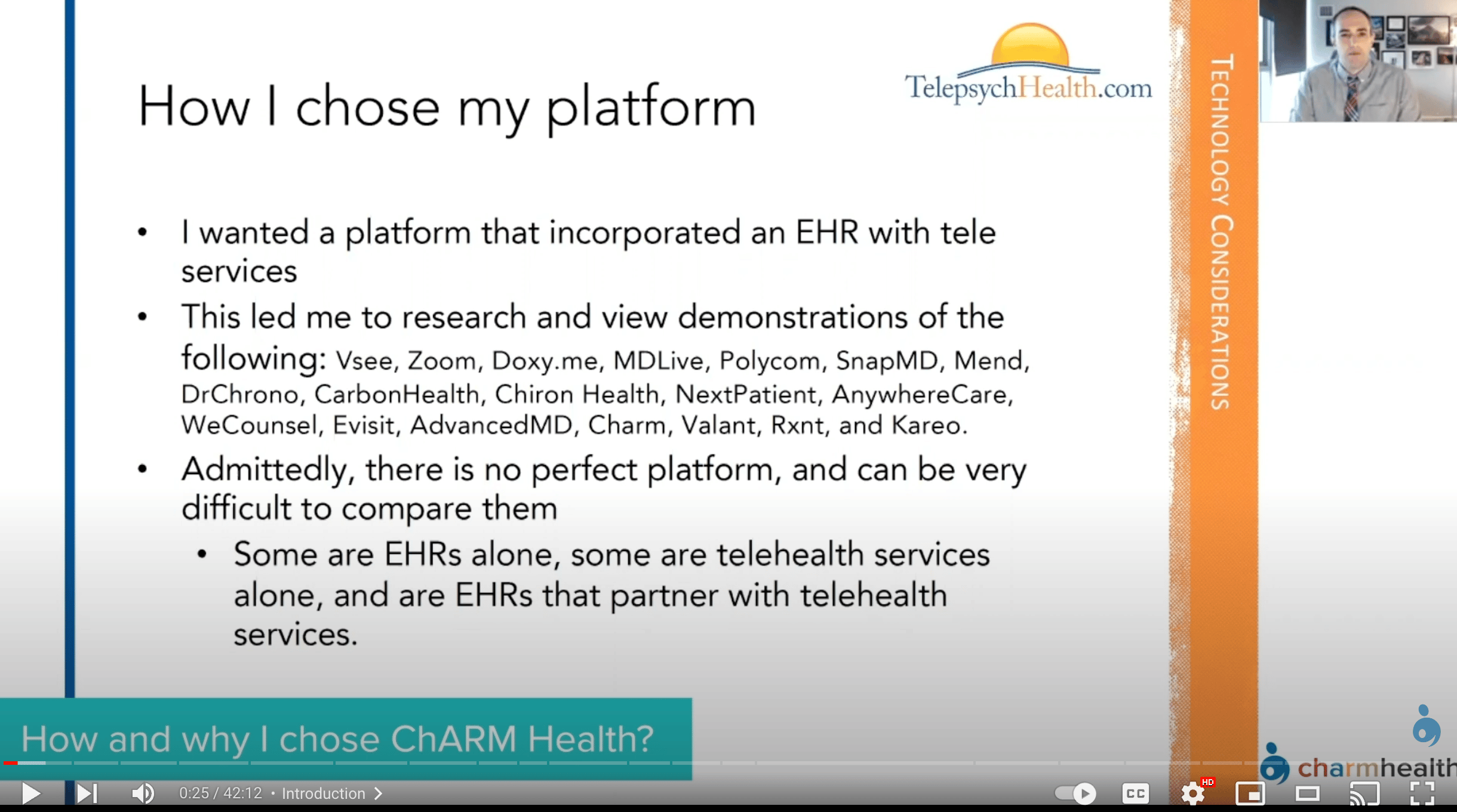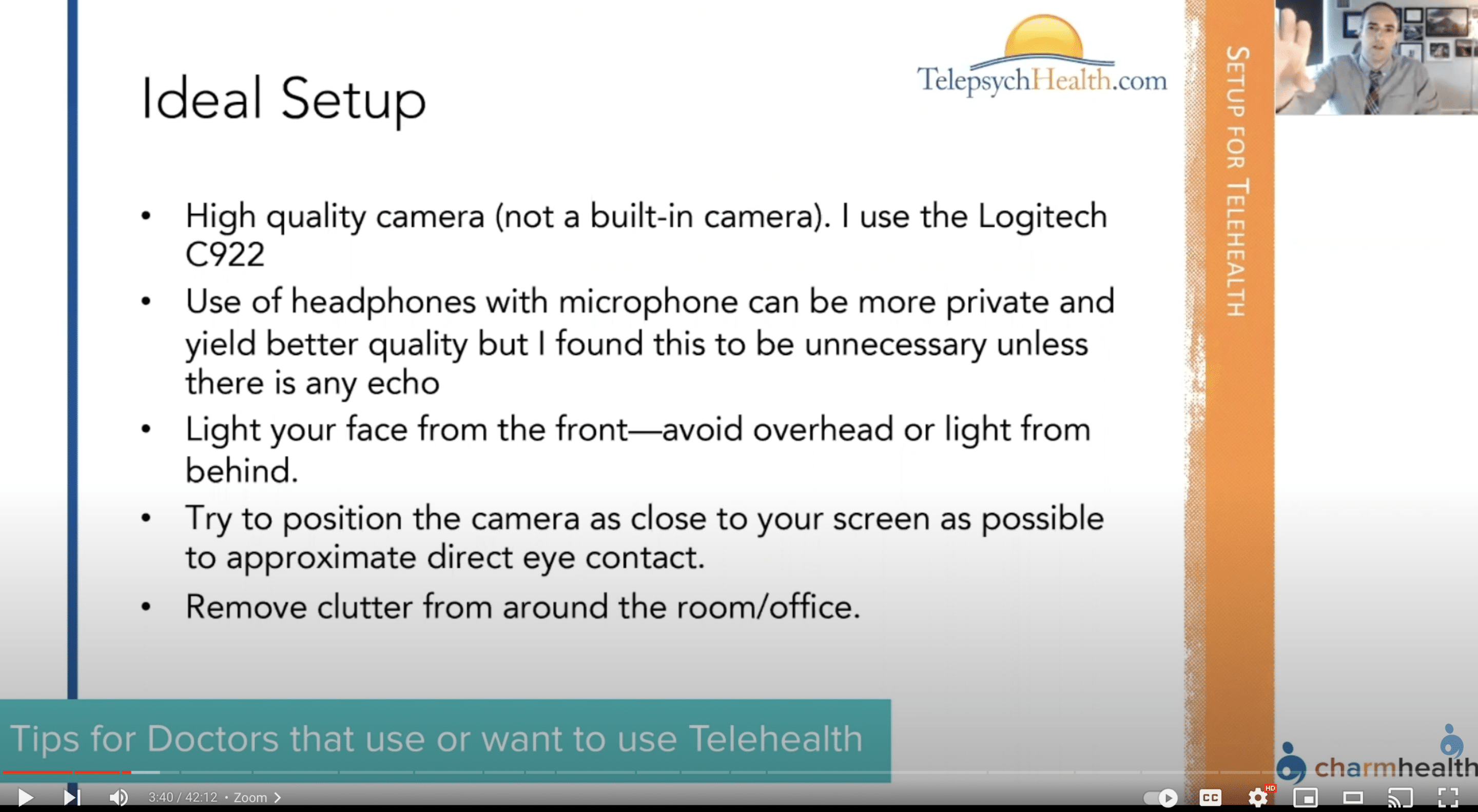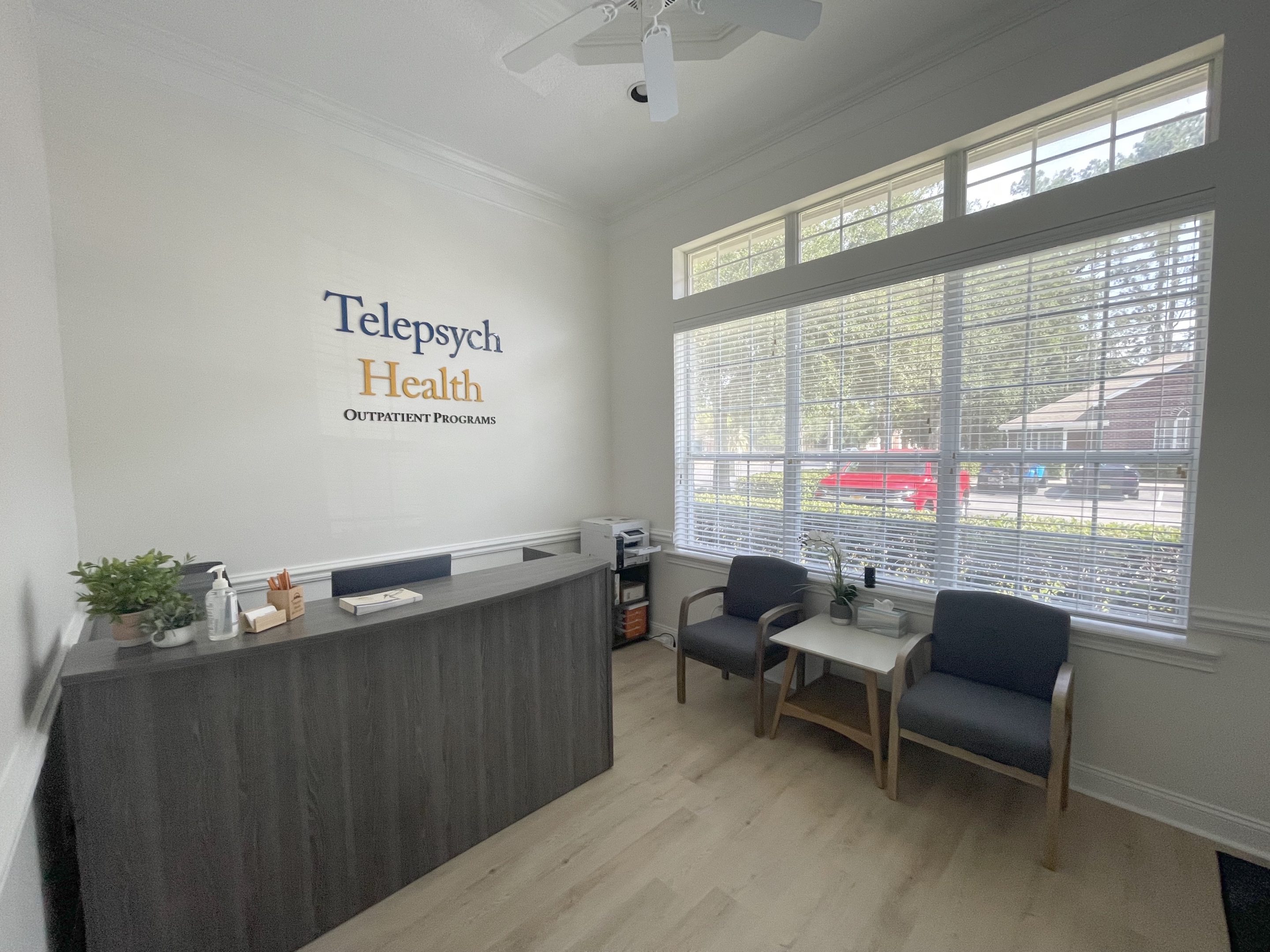In this video & article, Dr. Bruce Bassi discusses the most important features to consider when choosing an EHR system for a medical practice. It is crucial to choose an EHR system that meets the specific needs of different healthcare providers, including physicians, therapists, and psychiatrists.
KEY TAKEAWAYS
- Despite similar use-cases, physicians, therapists have different must-have features when looking for an EHR.
- Some value flexibility, while others value ease of use, reminder systems, or cost.
- ChARM excels in ease of use, customization, transparency of cost, support, and implementing user feedback.
Choosing the right EHR system is a critical decision for any medical practice. In this article, we will discuss the important factors to consider when evaluating different EHR vendors and selecting the right system for your practice.
Electronic health records (EHR) systems are essential in providing quality patient care and improving patient outcomes. It is crucial to select an EHR system that meets the needs of healthcare providers and supports the practice management system. The vendor selection process should involve evaluating various EHR systems and comparing their features, including data storage, data security, and meaningful use compliance.
The implementation process of the chosen EHR system should also be taken into account, along with the upfront investment and subscription costs. The EHR software should have high-priority features to meet the needs of physicians, office staff, and patients. Choosing the right EHR system can help save money in the long run and improve patient engagement and outcomes.
What are some of the most important features to look for when choosing an EHR system for mental health professionals?
Electronic Health Records (EHRs) have become an essential part of modern healthcare, and mental health professionals are no exception. With so many EHR systems available in the market, it can be overwhelming for mental health professionals to choose one that fits their needs. To make this decision easier, it is crucial to understand the important features to look for in an EHR system.
Here are some of the most important features that healthcare professionals should consider when selecting an EHR system:
1. User friendly interface
First and foremost, it is crucial to prioritize a user-friendly interface that is both easy to use and onboard. This allows for quick access to information and minimizes the number of clicks required to navigate the system.
Additionally, the EHR should be designed in a way that information is organized and easily accessible to the user, with a responsive interface. One way to assess ease of use is by demoing different EHR systems to see how they perform in practice.
2. Utilizing templates to save time
Clinical documentation templates are an essential feature of electronic health record (EHR) systems that can save healthcare providers significant time. By using EHR software with pre-built templates for patient information, medical practices can efficiently document patient information and capture all relevant data.
This is particularly important for meaningful use and to comply with the accountability act. Utilizing clinical documentation templates can also improve patient outcomes and engagement by ensuring that all necessary medical records are captured and organized properly in the EHR system.
3. Information security
Securing patient medical records is critical to maintaining compliance with HIPAA regulations and avoiding potential fines. It is the responsibility of medical practices and electronic health record system vendors to ensure that patient medical information is kept secure, utilizing features like two-factor authentication and strong, frequently-changing passwords.
Implementing these security measures can help to prevent data breaches and protect patient privacy. Additionally, health information technology systems should enable providers to comply with regulations related to electronic health records, such as the accountability act, and ensure that patient data is secure both on the backend and during transmission.

4. Appointment reminders
Fourth is automated reminders for appointments, medication, renewals, and followups. This helps clinicians keep better track of patients and also for patients who forget that they need a follow up, this can be really helpful for them too.
The reminders are difficult because it needs to strike a balance between being helpful but not too annoying, and must be customizable to suit different patients. It’s particularly difficult because different people have different needs.
Some patients may want frequent reminders while others may not want to be reminded at all, and may prefer different modes of communication such as text or email. So the EHR should be customizable so that the user can tell the EHR system how frequently they want reminders or give them the option to opt out if possible.

5. Integration with other systems for added flexibility
The fifth important aspect of an EHR system is its ability to integrate with other tools. There are various tools available for email, reminders, texting, calendars, and more, which can make it challenging for the EHR system to excel in all these features.
Therefore, the system should allow integration with other tools. This integration would result in a more streamlined delivery of care for tele-health, billing, claims, scheduling, and other healthcare services.
6. Robust reporting and analytics
The sixth crucial feature to look for in an EHR system for mental health professionals is reporting and analytics. This feature allows therapists to track patient progress, measure treatment outcomes, and monitor the practice’s performance. Without these tools, it can be difficult to assess the quality of care being delivered and to identify areas for improvement.
Therefore, having an EHR system that includes reporting and analytics is essential for optimizing patient care and ensuring the success of the mental health practice.
7. Mobile access
Seventh, mobile access is an essential feature to consider when selecting an EHR system. Mental health professionals should have the ability to access patient information from their mobile devices, and patients should be able to access their electronic medical records from their own mobile devices. With approximately 50% of our web traffic coming from mobile devices, it is essential to ensure that the system is optimized for mobile use.
8. Customization options
The eighth essential feature of EHR systems is customization options. An EHR should offer customization options that allow providers to tailor the system to their specific needs or preferences. Everybody has different heuristics, different things that they feel are important. And they’re going to want to focus on those things. EHR systems should allow for flexibility with those because it’s never going to meet all of the needs of all people all the time.
It’s important to note that the customization options should allow the therapist to adapt the system to their specific needs. This means that EHR systems should be able to accommodate different workflows, charting requirements, and other aspects of a mental health practice. By providing customization options, the system can be more easily adopted by the therapist and integrated into their practice.
9. Customer support
The ninth important feature of EHR systems is customer support. A good EHR system should offer responsive customer support, ideally within a few hours, but at least within a day. This ensures that therapists and other healthcare professionals can quickly get help if they encounter any issues or have questions about the system. In addition to timely customer support, the EHR system should provide free online training resources to its users. It should also offer the option of one-to-one training if requested, to help users get the most out of the system.
Having reliable and effective customer support is crucial for ensuring the smooth and efficient use of health information technology, such as EHR systems. It can give users the confidence and peace of mind they need to focus on providing the best possible care to their patients, knowing that any technical issues or questions will be promptly addressed.
#10 Implementing feedback
Tenth, user feedback is critical for EHR systems. Ideally, the EHR should have a system where users can suggest and upvote new features they find helpful, essentially crowdsourcing the system’s roadmap to its most loyal customers. This allows users to see where the system is going and have some influence over its development.
The ability for EHR systems to listen to its users is crucial as it falls under the category of what people actually want. If an EHR system does not listen to user feedback, it is of little use. Additionally, the system should promptly implement user feedback to continuously improve and meet user needs. The EHR system should work closely with its customers to understand their needs, as exemplified by the charm EHR system that I currently use, which implements customer feedback.
Why I like using ChARM EHR?
I really like working with charm for these reasons because they listen to user feedback and they actually incorporate it into the new versions of the EHR system.
So I hope this video on EHR systems was helpful. And if it was please subscribe, hit the notification bell for future videos. And if you could like the video or leave a comment below to let me know what you think. Thanks a lot. I appreciate you listening.

 Bruce Bassi
Bruce Bassi





